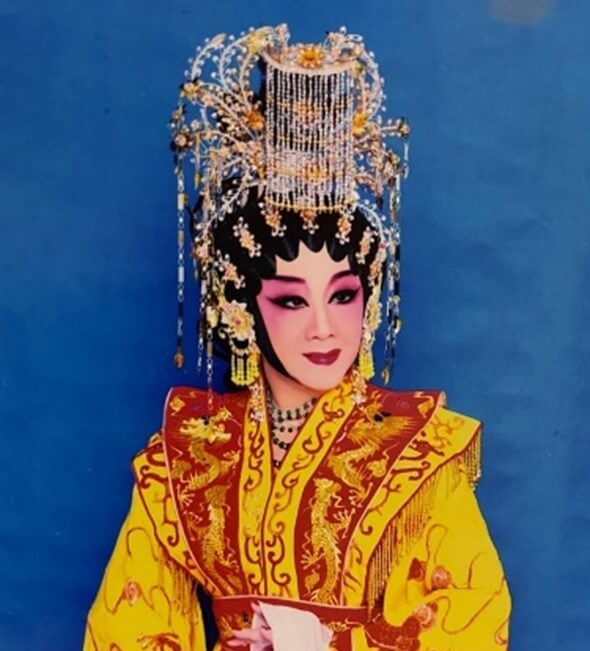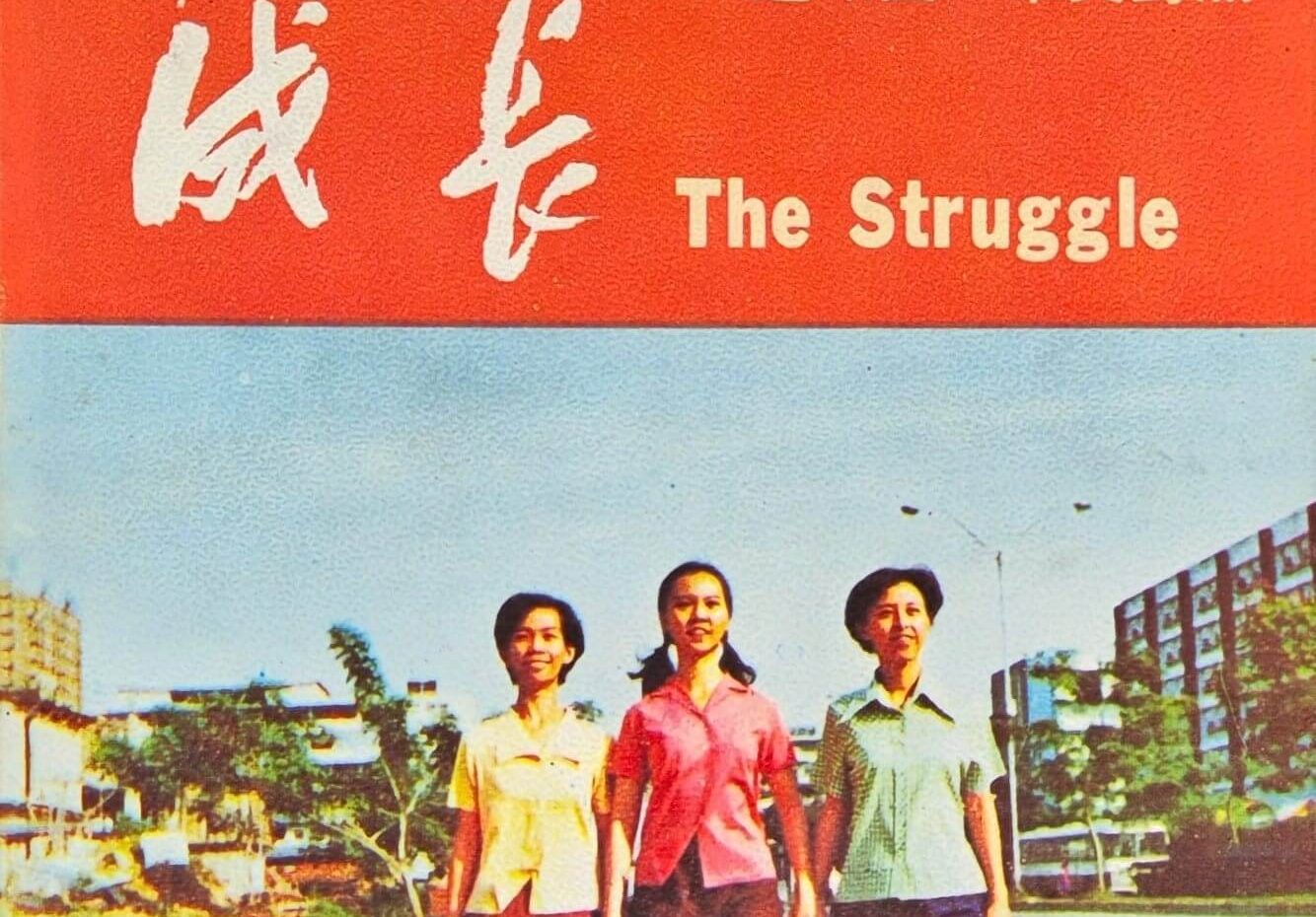偶戏在新加坡:十指帮和猴纸剧坊
19世纪末至20世纪初,不同籍贯的华人南来狮城带来了传统的娱乐艺术。早期的偶戏因此呈现明显的地域特色,如潮州铁枝木偶戏、兴化和福建提线木偶戏、福建布袋戏和海南杖头木偶戏等。以潮州铁枝木偶戏为例,其前身为纸影戏,表演上继承皮影技法,融入潮汕元素,借鉴潮剧艺术,形成了独特风格。1
传统偶戏
传统偶戏一般用方言表演,常在街头或庙宇内搭建临时舞台演出,有时也在私人庆典如婚礼或寿宴上献艺。随着方言的式微和其他艺术如歌台的兴起,传统偶戏自1990年代起整体呈衰落趋势,本地活跃戏班也不断减少。
早期的潮州铁枝木偶戏班有老元华、老三正顺、三正兴、老宝顺兴(于1938年更名为老赛宝丰)2、源正丰、梅正天香、新桃源春、新怡梨兴等。3具有百年历史的新赛宝丰班班主吴亚荣从其父亲手中接任该班,于2015年9月间在麦波申路一带的慈忠庙进行最后一场偶戏演出。而传承三代到班主郭慧卿的新怡梨兴,则是目前本地唯一活跃的潮州铁枝木偶戏班。

早期的兴化提线木偶班有紫星楼(1920-1923)、得月楼、和平(1930年代)、凤凰亭(1954)、星洲剧团、新群芳(1979)等。4新和平木偶戏班前身是和平木偶戏班,由第三代班主杨来好于1981年接手,是目前唯一现存用兴化方言演出的木偶戏班。
1947年,符祥春(1904-1989)与朋友组成三春隆,是本地有记录的历史最悠久的海南杖头木偶戏班,1948年曾受邀去印尼廖内演出15晚。目前依然活跃的海南杖头木偶戏班,还有成立于1956年的新兴港琼南剧社。5
人偶同台及其它:十指帮
1996年,实践表演艺术中心(今实践剧场)成立“十指帮”,旨在把木偶剧推广给年轻一代。1999年,十指帮脱离实践剧场,成为独立剧团。2001年,十指帮推出其首部完整剧目《哪吒》。十指帮积极与各个国际偶戏团体交流,吸收东西方特色,其多部作品曾获颁总统设计奖以及多项新加坡《海峡时报》“生活!戏剧奖”。人偶同台表演是“十指帮”剧目的重要特色,其主要作品有:《最北极南》(2004)、《翻心》《成人非童话》(2005)、《我只是个钢琴老师》(2006)、《皮诺丘情结》(2008)、《私房话》(2009)、《掌中》(2011)、《生死书》(2013)、《让爱常在我心中》(2015)、《无独有偶》《龙宫借宝》(2016)、《灵戏》(2017)、《大狗民》(2018)、《窥乌》(2020)、《四谷的幽灵》(2021)、《每一件美好的事》《偶起源故事@126》(2022)等。
《掌中》(张子健编导)以偶戏演员们几十年的命运为题材,表现他们对偶戏艺术的追求。该剧于2014年复排,并于2020年重新制作及以同名有声剧场的方式在线上推出。
陈鸣阗是十指帮的创建人和艺术总监,2005年因其推广偶戏艺术的杰出表现而获颁新加坡日本商工会议所文化奖。2004年,活跃于英语剧场的张子健加入十指帮,剧场进行了艺术转型,致力于把偶戏发展为供不同年龄层和群体观赏的艺术,开始拓展以成人为对象的戏剧,并以华英双语或多语演出。2023年出任十指帮艺术总监的钟达成,自2004年加入该团后便一直担任驻团导演至2018年,其自编自导自演的独角戏《根》(2013)获得该年《海峡时报》“生活!戏剧奖”(最佳剧目奖和最佳剧本奖)。6

为儿童创作的偶戏:猴纸剧坊
2008年4月由何家伟创立的猴纸剧坊是专门为孩童创作偶剧的双语剧团,其综合了传统与现代偶戏技艺,并在故事中融入亚洲文化与价值观,搬演及自创剧目有:《周处除三害》(2012)、《花田错》(2013)、《小蝌蚪找妈妈》(2014)、《西游之盘丝洞》(2015)、《宝莲灯》(2016)、《神笔马良》(2017)、《真假美猴王》《糟了!怎么办?》(2018)、《牛转乾坤》《武松打虎》《不会游泳的小鸭》(2021)、《西游之火焰山》(2020)、《西游之三打白骨精》(2022)、《西游记之红孩儿》(2023)等。此外,剧坊也配合不同主题,创作适合学生观看的作品如《千羽鹤》《水银》《我的阿公》《拥抱大树》《灯节舞龙》《东郭与狼》等。除公演节目外,猴纸剧坊还根据学校和社区要求举办了各类关于偶戏的工作坊。
猴纸剧坊尝试把不同的现代元素融入到偶戏中,丰富表演形式,也使偶戏更贴近当代观众。例如,《神笔马良》使用了自家独创的纸张代替木头主架构的新偶种。在2013年,为纪念猴纸剧坊成立五周年,其改编经典京剧,推出了人偶同台的《花田错》。2019年,猴纸剧坊10周年庆时重新编演音乐偶戏《花田错》,从台湾定制了40个霹雳偶,并创作了19首歌曲,结合摇滚、探戈、流行和华乐元素,充满现代感。

猴纸剧坊创办人何家伟曾于1990年参与创立TOY肥料厂,71996年,他也曾与陈鸣阗等人共同组建隶属于实践剧场的十指帮。82008年,他创建猴纸剧坊,并担任艺术总监至今。在其倡导下,猴纸剧坊改良传统的潮州铁枝木偶,将铁枝衔接到手肘而不是手腕,以使演员操控更为轻便。其原创作品多以现代方式演绎古老故事见长。
偶戏在本地的历史已过百年。由于语言、人力、社会发展等各种原因,本地传统华族木偶戏班在20世纪中经历了从繁荣到衰落的过程。目前活跃的偶戏剧团在推广传统偶戏的同时,在偶物设计、剧本创作、演出语言、主题深度等各方面,不断做出尝试与创新,结合东西方偶戏特色,融入多元艺术形式,以满足当代观众的需求。
| 1 | 成婉绮,《我们不一样:新加坡潮州铁枝木偶戏案例研究》(南洋理工大学历史系学士学位论文,2019)。 |
| 2 | 据老赛宝丰老班主郑利发的口述,老元华、老赛宝丰和老宝顺兴是一脉相承的关系。老元华(木偶与清唱班)由郑利发的祖父创办,老宝顺兴(大戏、木偶戏)由郑利发的父亲及舅父合办,郑利发的父亲独自创立的剧班是老赛宝丰。参见:郑利发,口述历史录音访谈,1988年3月28日,新加坡国家档案馆(检索号:000893),卷5。 |
| 3 | Caroline Chia and Jesvin Yeo, Forgotten Heritage: Uncovering Singapore’s Traditional Chinese Puppets, 115–116. |
| 4 | Caroline Chia and Jesvin Yeo, Forgotten Heritage: Uncovering Singapore’s Traditional Chinese Puppets, 27–28. |
| 5 | 莫美颜,〈从辉煌到没落,木偶只在妈祖诞忙碌〉,《联合早报》,2012年4月26日。 |
| 6 | Seet Khiam Keong, The Finger Players (Introductions), 166. |
| 7 | 周文龙,〈戏剧盒和TOY肥料厂20岁,20年前的不舍换来20年艰辛快乐〉,《联合早报》,2010年1月12日。 |
| 8 | 王一鸣,〈十指帮重组,艺术总监轮流做〉,《联合早报》,2019年8月27日。 |
许永顺,《新加坡华族戏曲汇编,1965-1983》。新加坡:许永顺工作厅,2009。 | |
蔡曙鹏,《华族戏曲的变革与创新研讨会论文集》。新加坡:国家文物局,2009。 | |
柯思仁编著,《戏聚百年:新加坡华文戏剧1913-2013》。新加坡:戏剧盒、新加坡国家博物馆,2013。 | |
Quah, Sy Ren. Xiju bainian: Xinjiapo huawen xiju 1913–2013 [Scenes: a hundred years of Singapore Chinese language theatre 1913–2013]. Singapore: Drama Box, National Museum of Singapore, 2013. | |
Seet, Khiam Keong and Chong, Tze Chien. The Finger Players (Introductions). Vol. 1. Singapore: The Finger Players, ONE-TWO-SIX Cairnhill Arts Centre, 2014. | |
Seet, Khiam Keong and Chong, Tze Chien. The Finger Players. Playscript Vol. 2–10. Singapore: The Finger Players, ONE-TWO-SIX Cairnhill Arts Centre, 2014–2015. |










